“Writing for Your Life”
Lil Brannon, Department of English, UNC Charlotte
Most people in the US hate and fear writing. They avoid writing if possible, and dread putting words down on paper. Words are powerful. Words shape who we are. And our words mark us—they place us, they inscribe us. But does it matter? Does it matter whose words are written? Think for a minute about how teachers appear in film: Mr. Hand in Fast Times at Ridgemont High, Charles Kingsfield in the Paper Chase, The Economics teacher in Ferris Bueller’s Day Off, Jaime Escante in Stand and Deliver, Louann Johnson in Dangerous Minds, Joe Clark (the principal with the Bat) in Lean on Me, Glenn Holland in Mr. Holland’s Opus, John Keating in Dead Poet’s Society, Mark Thackeray in To Sir With Love, Dave Jennings in Animal House, Conrack, Erin Gruwell in Freedom Writers. Across the Internet, if one googles “Teachers in Movies,” one will read statements like, “Watch this movie and remember why you teach.” But if one thinks critically about these portrayals–these images of teachers, these characters and their words–one can see that teachers, to make it into the movies, must be rugged individualists and, more often than not, male. Teacher heroism means working alone against all odds and having no life. Teachers are depicted either as clueless or authoritarian or isolated in schools filled with incompetent “others.” Are these images really what school is like or is supposed to be? What is at stake in the perpetuation of these images? This seminar will explore why it really matters to critically examine images and word, or what scholars call “the politics of representation.”
Fellows will use their classrooms as philosophical laboratories, examining how the use of (or misuse of) writing in teaching in order to think about how people attach value to words and images. Fellows will examine stories about teaching and learning–published stories and films as well as stories that Fellows will write—in order to critically reflect on what it means to be a teacher. In other words, Fellows will become rhetoricians—people who study how language works to construct realities. The seminar focus will be on the politics of language, narratives, and the tropes that they live by (“one teacher can make a difference”), and how teachers write their way into, through, and against those narratives. Readings for the seminar will include essays on the struggle over representation and the politics of language, on the intersection of language and identity, and on how various cultural narratives both enable and constrain what we think is possible for our lives. The work will be both exploratory and reflective; that is, Fellows will be writing and examining their own representations of their lives while they read and critique what others say about why these stories matter. The larger aim of the seminar will be for Fellows to think about how their students construct the narratives they live by and how Fellows can engage them through subject matter to construct identities as intellectuals, as engaged readers and as creative and powerful writers.
Explore curriculum units developed by Fellows in this seminar here.
“Gender, Race and Justice”
Jennifer Hartman, Department of Criminal Justice and Criminology, UNC Charlotte
This seminar is designed to examine the topics of femininities and masculinities and their influence on participants in the criminal justice system (CJS). Specific topics to be examined include: (1) gender; (2) the notion of gender and offending; (3) women and men as victims of violence; and (4) women and men as professionals within the criminal justice system. These topics will be focused on the intersection of gender, race and justice. A part of the seminar could explore how traditional criminological theories have been limited in examining the etiology of offending. Another part of the seminar may examine women and men as survivors of violence (e.g., domestic violence, sexual harassment, rape) and challenges the image of the fearless male/fearful female. Last, the “where” and “how” the gender gaps within the various criminal justice professions persist may be explored. The seminar explores the feminist perspective, which addresses a power imbalance in gender and race equality and discusses how this imbalance affects treatment of people in and by the criminal “justice” system.
Since the information is inter-disciplinary in its scope, the seminar could be relevant to those in the social sciences, as well as hard sciences. Specifically, Fellows could discuss how genetic influences environment (e.g., nature vs. nurture); while those interested in literary issues could discuss the relevance of theories and its impact upon laws, economics, psychology, etc. Last, those interested in math curriculum, Fellows could explore meaningful contribution of rates of crime and victimization over time.
Explore curriculum units developed by Fellows in this seminar here.
“How Languages Are Learned and How Best to Teach Them”
Burkhard Henke, Department of German and Russian, Davidson College
Are languages learned mainly through imitation and practice? Are students with high IQs better language learners? Are most of the mistakes which second language learners make due to interference from their first language? Should grammar be taught in the target language? Should grammar be taught at all? Should teachers correct their students’ errors as soon as they are made in order to prevent bad habits? Do students pick up each other’s mistakes when they are allowed to interact freely? Do students learn better in a multimedia environment or do they retain information better when it is presented on paper? And when they don’t seem to learn anything, whose fault is it? These and many other questions underscore the fact that everything in the language classroom rests on some theoretical premise of how languages work and how they are learned.
In this seminar Fellows will study the major theoretical models that explain second language acquisition, examine their ramifications for language teaching, and conclude with an in-depth look at language teaching and technology, specifically Web 2.0 applications (Facebook, YouTube, Skype, wikis, blogs, etc.). Together Fellows will decide on particular areas of focus, such as vocabulary, syntax, error correction, socialization, motivation, interlanguage, assessment, and social networking, to name but a few. Although the course will help CMS teachers of all foreign languages, incl. ESL, increase their knowledge of second language acquisition processes, it will feature constant practical application and will allow Fellows to develop more effective teaching strategies in whatever language they teach.
Some sessions will be held in Davidson’s Language Resource Center. All Fellows will have access to the facility throughout the semester.
Explore curriculum units developed by Fellows in this seminar here.
“The Rise of the New South”
Shep McKinley, Department of History, UNC Charlotte
After the Civil War ended badly for the Confederacy, white southerners invented the concept of the “New South” in the hope that by promising that they had left slavery and the plantation South behind, they could convince northern capital to flow south. In the ensuing years, many so-called “New Souths” would follow as black and white southerners struggled to define what this new identity would mean—economically, politically, racially, religiously, and culturally. In this proposed seminar, Fellows will explore this evolution of New Souths through Reconstruction, the classic (first) New South (1877-1913), Jim Crow, the culture wars of the 1920s, the Great Depression and World War II, the Civil Rights Movement, and the newest New South (including that ambitious figment of its own imagination, Charlotte North Carolina). Fellows will utilize a mix of scholarly books and articles, movies (“Miss Scarlett! Miss Scarlett!”), documentaries, newspaper articles, speeches, biographies, and autobiographies, as well as the opinions about southern identity of the seminar participants (native southerners as well as carpetbaggers like me). The seminar will meet once or twice at the Levine Museum of the New South, and perhaps tour a Charlotte mill village and mill with the museum’s historian, Tom Hanchett. In the course of the seminar and discussions, some controversial historical topics and images will be addressed, including the evolution debate in the 1920s South and graphic photographs of lynching victims.
Explore curriculum units developed by Fellows in this seminar here.
“Mathematics in Art”
Donna Molinek, Department of Mathematics, Davidson College
In this course Fellows will study relationships between mathematics and the visual arts. By exploring the characteristics found in works of art Fellows can motivate the study of various abstract mathematical topics. For example, in examining perspective geometry develops; from symmetry, group theory; from Escher-type prints, tiling and hyperbolic geometry; from sculpture, topology; and from computer generated images, dynamical systems. Other mathematical topics arise from observing nature, studying architecture, and exploring tapestry from various world cultures. Such topics include the Fibonacci sequence, the Golden ratio, wallpaper and frieze patterns, and knot theory.
As an example of what may be studied, consider the carving shown, known in West Africa as a symbol for unity. This piece is carved from a single piece of wood. If any one of the figures is removed, the other two fall apart. A knot theorist will recognize this as an example from the family of Brunnian links and the unity idea can be extended to any number of components. From here one can begin the study of Knot Theory, a branch of Topology. First one must define a knot, what it means for two of them to be the same and learn tools to distinguish between different knots and links.
As another example, consider a pattern found on a building. Upon examination, one sees many types of symmetry, possibly leading to a study of groups (from the field, Abstract Algebra), which can be thought of as a generalization of the familiar set of integers with the operation of addition. Here, one associates symmetries that leave the pattern unchanged with elements of a set and then, the process of composing different symmetries with combining elements of the set. If one imagines the pattern to continue indefinitely, then the focus of study becomes wallpaper patterns and the related topic of strip patterns. There are only a finite number possible which remain unchanged by symmetries of the plane. This leads, then, to explore transformations of the plane and algorithmic approaches to classifying objects.
Explore curriculum units developed by Fellows in this seminar here.
“Environmental Sustainability: Science, Society and Solutions”
Chris Paradise, Department of Biology, Davidson College
The seminar will focus on the ways in which individuals and societies can become more sustainable. But more than that, Fellows will explore the science behind sustainability and the science behind a variety of environmental issues, including global climate change (and how a place like NC can have brutally cold days in January if the planet is warming), overpopulation, pollution and invasive species, energy, and food. In addition to science, Fellows will examine how society is impacted by environmental issues, and some proposed solutions to environmental problems, considered from both a science and societal perspective. Participants will learn how to analyze costs and benefits in general, and how science and society are both necessary to solve environmental problems.
A topical example is food and agriculture: The way that food is grown has effects on human and ecosystem health. Fellows will attempt to come to an understanding of the science behind such aspects as agricultural productivity, organic food, pest control, and vegetarianism, to name a few. For any decision that is made about how to grow our food and what food to eat, there are advantages and disadvantages. Industrial agriculture, organic, local food, confined animal feedlot operations, and meat consumption all have costs and benefits that can be analyzed from several perspectives and disciplines.
Another example is the ecological footprint – what is it, what metrics make up a footprint, and what is your ecological footprint? What is your water footprint? What is your carbon footprint? From analysis of footprints, areas in which individuals have the most impact can be identified. A variety of related topics could then be covered that correspond to the footprint analysis: energy use and efficiency, travel, food, water, consumption habits, and housing. Discussion and research on sustainable ways of living would arise from the discussion of these different categories.
Because this will be an interdisciplinary seminar, it could be relevant to any teacher in the humanities, social sciences or natural sciences who would like to learn more about environmental issues and integrate environmental issues into their classroom. The seminar will be best appreciated by participants who have some experience in or knowledge of the environment.
Explore curriculum units developed by Fellows in this seminar here.
“Redefining Modernism through the Collection at the Bechtler Museum of Modern Art”
Shaw Smith, Department of Art, Davidson College
What is Modernism? How has it been defined? How do we define it? As an historical period? As a way of thinking? As a single concept? What forms does it take? How do people recognize them?
Given the need and interest in visual literacy in American schools, this session will “introduce” the collection of the new Bechtler Museum to an important constituency, namely teachers. The seminar has the wonderful opportunity of taking advantage of one of the major inspirations of this fabulous collection, the drive to display many objects associated with European modernism, and to highlight the collection’s prominent role in the redefinition of modernism for the benefit of the teachers and their students, but also, by way of an introduction, for the museum itself.
This introductory seminar could then focus on the works of the collection as they redefine “Modernism” (in contrast to the narrowly defined Modernism found in the privileged American terms by Clement Greenberg) in more global terms which include many of the works of the collection from modern artists not living in the United States. The time period could range roughly from the advent of Cubism in 1906 to the May Riots of 1968 and building of the Pompidou Center. In particular, what was the role of Paris, called the “Capital of the Modern Self,” so avant-garde and yet so traditional during the first half of the 20th century?
By addressing the issues of Modernism in visual art as a basis of seminar discussions, Fellows could evoke parallel ideas and contributions from many disciplines. Thereby Fellows could discuss through the metropolitan prism of a redefined modernism many tugging issues of the attention to the past and the modern exploration of the future. Depending on the interests of each particular member of the seminar, these topics could possibly include such interdisciplinary subjects about war, race (Arthur de Gobineau to Josephine Baker), the holocaust, urban renewal (Montmartre and Montparnasse), colonialism (in Algeria and Indochina: “Do not visit the Colonial Exposition of 1831”), French film (film noire) and photography, fashion, family, education (include to be named Director of Education), avant-gardism, new technology (Blériots to Métros) and science (Curie and Poincaré), the danger of the beguiling notion of the “Old Paris” in the modern world, the Marshall Plan and Cold War, Le Corbusier and Modernism in architecture (John Boyer’s specialty), new aesthetic tendencies (reductivism, functionalism, formalism, anti-aesthetic, primitivism, abstractions) the nature of collecting art, historiography, the role of ex-patriots and the so-called magnet of Paris (Stein, Cones, Hemingway, Bearden), French philosophy and religion in a secular state, French feminism (Société des Femmes Artistes Modernes, or FAM, and Simone de Beauvoir), the role of governmental support and private patronage in French visual arts, Paris versus the provinces (the Ile de France and the Côte d’Azur), French culture wars with American hegemony and pop culture (Brigitte Bardot vs. Marilyn Monroe), the changing role of a revived Paris in the modern world and the question of any metropolitan center of the past in the future of a global world. In short, is Paris still the capital of Modernism in this redefinition?
Any, but probably not all, of these topics could be up for discussion depending on the needs and interests of the Fellows. By using direct experience with the Bechtler collection as a catalyst, Fellows could begin to redefine Modernism through our particular encounter with Modernism in the visual arts and through a more general development of our skills in visual literacy.
This seminar is a real opportunity for all humanities teachers from history to social studies and music and English to most European languages (including French) to art and religion to examine the concept of “modernity.” However, this seminar can also be useful to science teachers (and possibly to math teachers), who are interested in the history of science and scientific and mathematical theories of the twentieth century. Clearly it would be useful to middle and high school teachers who teach course units related to the twentieth century, but the seminar could also be useful to elementary teachers as a form of teaching “visual literacy,” that is, teaching younger students how to see and how to articulate their visual experiences, especially in terms of the development of modern abstraction.
Explore curriculum units developed by Fellows in this seminar here.
“Exploring the Solar System”
Susan Trammell, Department of Physics and Optical Science, UNC Charlotte
This seminar is appropriate for all science and math teachers in grades K-12. The seminar will provide an understanding of the origin and properties the Solar System relevant to all grade levels. In addition, the seminar will use astronomy as a tool for teaching a broader spectrum of topics related to math, earth science, chemistry, physical science, and physics at the middle and high school levels.
Fellows will begin the discussion by looking at the process of scientific inquiry and examine an excellent example of the process through an introduction to the development of our current model of the Solar System. The format of the seminar will be discussions and laboratory experiments. Fellows will learn about the topics using hands-on activities and an inquiry-based approach. The seminar emphasis will be on developing critical think skills and applying the information learned to a variety to problems. The final syllabus for the seminar will be based on the topics that are of interest to the Fellows.
K-5 Teachers:
Why is Pluto not a planet anymore? Was there really water on Mars in the past and how do we know? The seminar discussion will focus on the causes of phenomena seen from Earth such as moon phases and eclipses. In addition, Fellows will explore the formation of the Solar system, examine the Sun as a star, and understand the properties of the planets and other objects that make up the local neighborhood.
Middle and High School Teachers: (Physics, Chemistry, Earth Science, Physical Science and Mathematics):
The seminar will cover a variety of topics that are relevant to the study of math and science at the middle and high school level. How long does it take for Neptune to orbit the Sun? Answering this question will lead to a discussion of gravity and Newton’s laws of motions, as, well as, an understanding of the properties of ellipses. How do we know the composition of the Sun? Why is the Sun yellow? These questions will lead Fellows into a discussion about light, spectra, and the Bohr model of the atom. Fellows will discuss the origin of the Solar System and its elemental composition. How do stars like the Sun change with time and how does this change affect the chemical content of the Universe? How old is the Solar System and how do we know? What do we know the compositions and ages of Earth rocks, Moon rocks and meteorites? How have planetary atmospheres changed with time? How do astronomers use trigonometry to measure the distances to objects? Through direct investigations Fellows will learn how astronomers and other scientists analyze and graph data.
Explore curriculum units developed by Fellows in this seminar here.
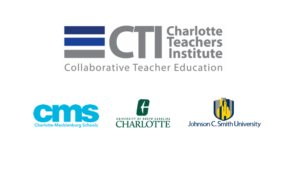
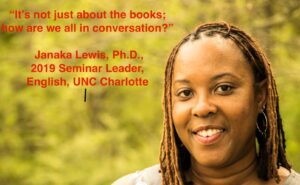
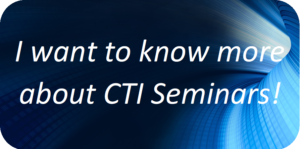
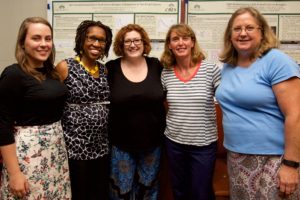
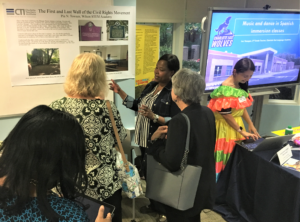
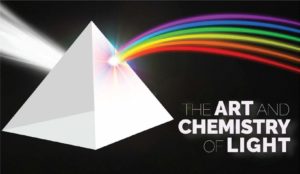




 Home
Home